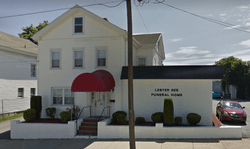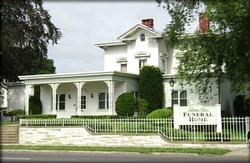Cremation Services
Part of making funeral arrangements on behalf of a loved one involves choosing between burial of the body, or cremation. People choose cremation over the burial of casketed remains for any combination of reasons: religious or spiritual beliefs, finances, or ecological awareness are just some of the reasons we've heard for choosing cremation. Once the decision to cremate has been made, all that's required is an authorization. This is provided by the person who is the legally identified or appointed next-of-kin. Once all authorization documents are signed, and service charges are paid; the body can be transported from the place of death to the crematory and the cremation process can take place. Before you can make the choice, you need to know exactly what it is you're considering. You can learn the basics below, however, if the content here raises additional questions for you, please give us a call.
The Flame Process
Traditional cremation is the process of reducing a body at very high temperatures until it is nothing but brittle, calcified bones. These are then processed into what we commonly call ashes. Returned to the family in a temporary urn (or a more personal urn selected by the family), these ashes can be kept, buried, or scattered. Some families even choose to place a loved one's cremated remains in a hand-crafted piece of cremation art.
Why Choose Cremation?
Everyone has their own personal reasons for choosing cremation over traditional casket burial.
Here are three reasons we’ve heard.
Cremation Costs
Cremation typically costs one-third of the cost of a traditional burial. While it's true that cost is a big factor for many families, it's important to remember that cremation is only one part of providing meaningful end-of-life care for a loved one.
Flexibility & Time
Environment ranks high among many who choose cremation. Casketed and embalmed remains take up cemetery space and can pollute the groundwater but many still question the amount of atmospheric pollution created by the cremation process.
Environmental Impact
Environment ranks high among many who choose cremation. Casketed and embalmed remains take up cemetery space and can pollute the groundwater but many still question the amount of atmospheric pollution created by the cremation process.
Cremation Options
Our dedicated staff will handle all details, including prompt filing of required permits and notifications. Accurate completion of these essential documents ensures their acceptance by local or state agencies; it guarantees your loved one's cremation will not be delayed.
We know it's essential for the families we serve to know their loved ones will be coming home as soon as possible. That's why we promise to notify you when their ashes become available and safeguard their urn until you are ready to receive them.
We offer three cremation options
Each can be modified to meet your needs
Traditional Cremation Services
These are much like a traditional funeral. The body of the deceased, placed in a cremation casket or a rental casket, is the focal point of the service. A visitation can take place prior to the funeral service and the cycle is completed with the cremation rather than a traditional burial. Once the cremation has occurred, the cremated remains are returned to your family. You can then decide to scatter, bury, or retain the cremated remains in an urn.
Memorial gathering after the cremation has taken place.
This can occur at any time and place after the cremation process. The urn is usually the focal point of the service. There are many advantages to taking some time to remember the life lived, share stories and laugh about all of the memories. Our team can help you plan a fitting memorial service with or without the cremation urn present, at our facility or in a place of your choosing.
Direct Cremation
Watch your profits and efficiency soar. You’ll expand faster than you ever thought possible.

(203) 335-5252
Lester Gee Funeral Home, Inc.
1390 Fairfield Ave
Bridgeport, CT 06605
Email: lestergeefh@gmail.com

